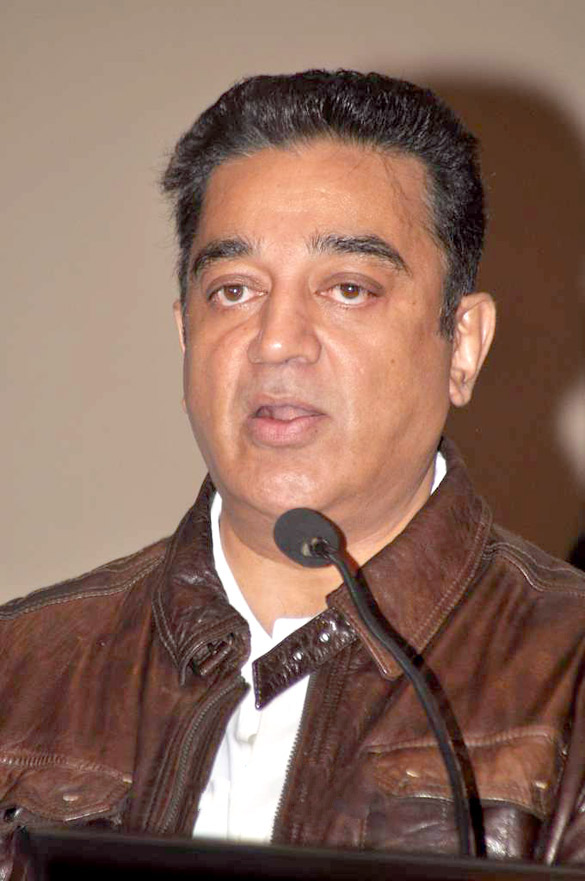The complaint filed against actor Kamal Haasan by a fringe group, Hindu Makkal Katchi, for hosting Bigg Boss Tamil is yet another assault on freedom of expression. The group, which demands the veteran actor’s arrest, claims that he has tarnished Tamil Nadu and its culture.
Now, culture is a funny thing; no two persons agree on what it exactly is; yet, anybody can start screaming that something is against Tamil culture, Hindu culture, etc. Worse, anybody who professes to be the champion of this or that culture is taken seriously; at their behest, criminal cases are filed, as in the present instant. Anybody who is a nobody but wants to become somebody takes this short cut to fame. Culture has thus become a plaything in the hands of social climbers and publicity hunters.
So, a Hindu Mahasabha leader told India Today, “Things shown in Bigg Boss are against the cultural value of India and no one who supports Indian culture will support this show. Earlier also, Kamal Haasan has spoken against Mahabharata and Hindu culture, and we are sure that in future he will again speak something through this show that will hurt Hindu sentiments.”
The leader was referring to Haasan’s statement that Panchali or Draupadi “was used a pawn while the men gambled.” She was used as “collateral,” the veteran actor had said. But isn’t that the way in which the sequence is described in the epic? How does the statement of facts hurt any sentiments? More importantly, should hurting any sentiments be the ground for the curtailment of freedom of expression?
The legal system in a liberal democracy is supposed to be run on the bases of facts and reason; something as nebulous as culture can never be allowed to become the pivot of jurisprudence; nor can something as fickle as sentiments be permitted to influence the dispensation of justice. But this is exactly that is happening in India.
In fact, even if the accused accept that they tarnish culture—whatever that may mean—no legal action can be taken against them; their Fundamental Right to freedom of expressions remains protected. For, according to the Constitution, the state can impose “reasonable restrictions” only “in the interests of the sovereignty and integrity of India, the security of the state, friendly relations with foreign states, public order, decency or morality, or in relation to contempt of court, defamation or incitement to an offence.” Tarnishing of culture doesn’t appear in the list of constitutionally specified grounds for action against free speech.
Similarly, hurting any type of sentiments does not appear in the list. Which is not surprising, for the grounds restricting the freedom of expression have to be reasonable; and anything reasonable can be objectively debated. Sentiments, however, can’t be objectively debated. Merriam Webster describes “sentiment” as “an attitude, thought, or judgment prompted by feeling”, “predilection”, “a specific view or notion”, “opinion”, “an idea colored by emotion”, etc. It is crystal clear that the defining feature of sentiments is subjectivity. This is the reason that the paintings of M.F. Husain hurt the sentiments of a section of Hindus, but there are also a large number of Hindus who don’t feel offended.
Without the ballasts of rationality, poise, and gravity, sentiments behave like malfunctioning robots; fortuitous combinations of circuits make their working arbitrary and often dangerous. If in public life we are guided by sentiments rather than reason, we will end up compromising with self-righteous charlatans and pious goons. All in the name of not hurting the sentiments.
The law and public administration should be molded by objective realities. Therefore, it is the travesty of law if Haasan, or any other creative person, is prosecuted or in other way victimized for expressing himself in a way that he deems fit so long as his action doesn’t fall into any specified reasonable restrictions.
The worst that can be said about Bigg Boss Tamil, or the franchise in general, is that it is the dumbing-down of television, that it is in bad taste, that it is crass. This is the reason that I find the programme intolerable, so I don’t watch it. Those who are opposing Bigg Boss Tamil are also within their rights to avoid it, but they infringe upon the rights of those associated with it and those who enjoy it by demanding a ban on the programme. And they are certainly tormenting a celebrated actor by seeking legal action against him.
Photo courtesy: www.wikipedia.org
